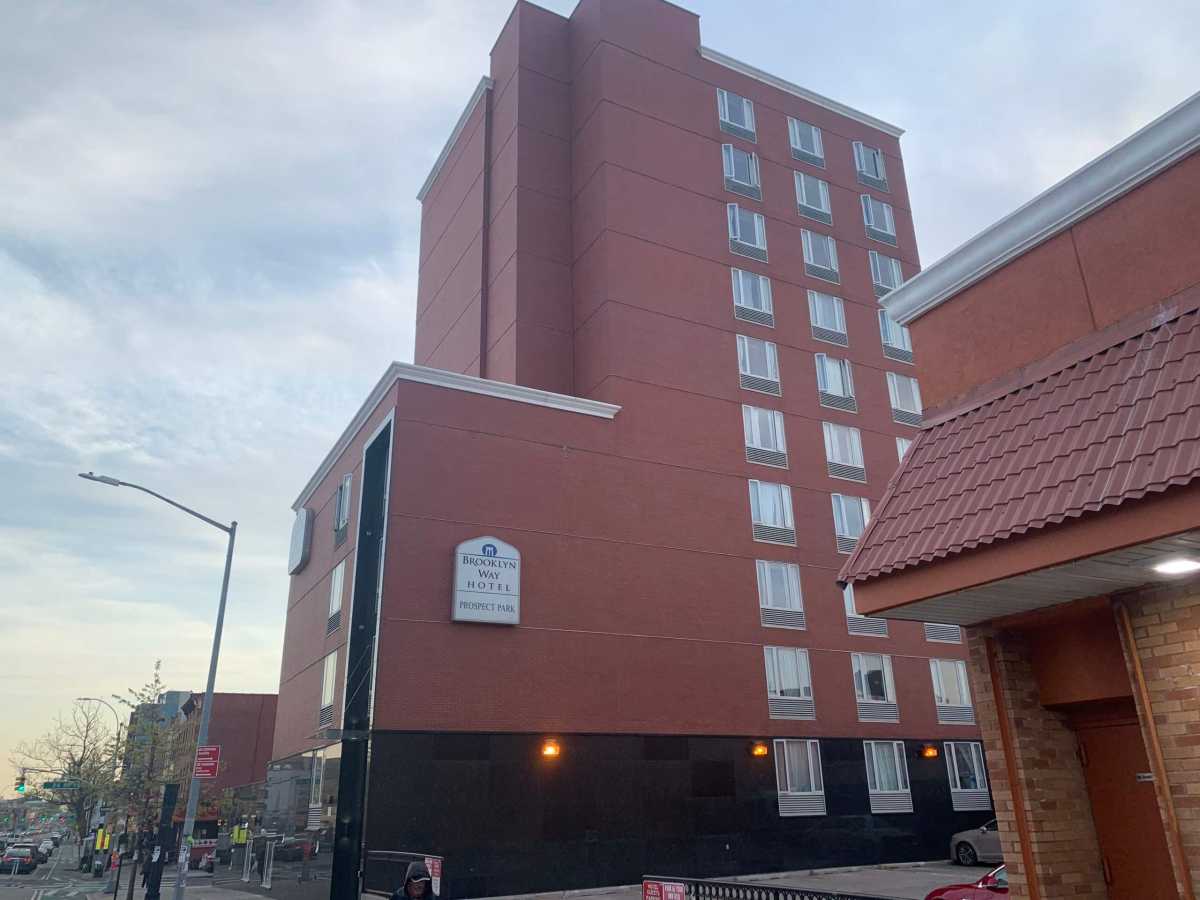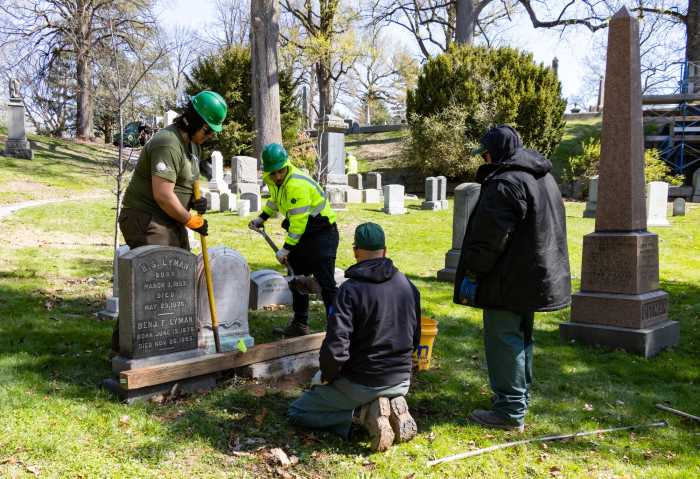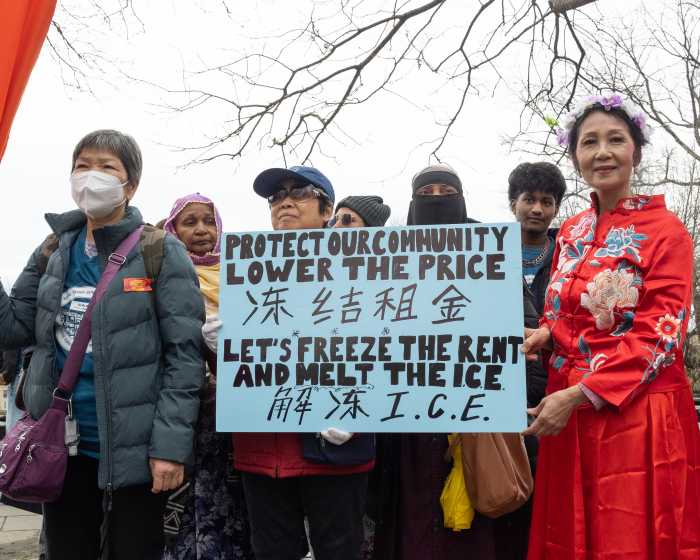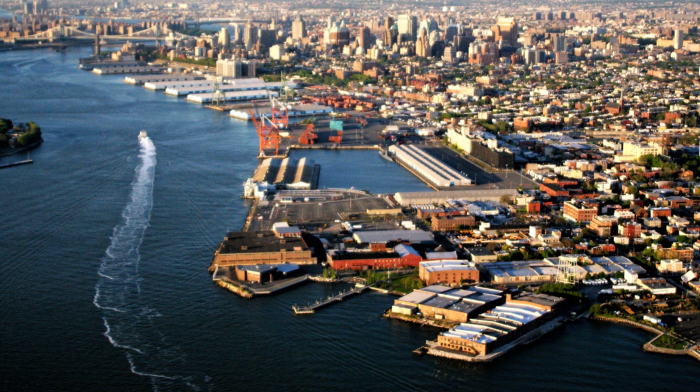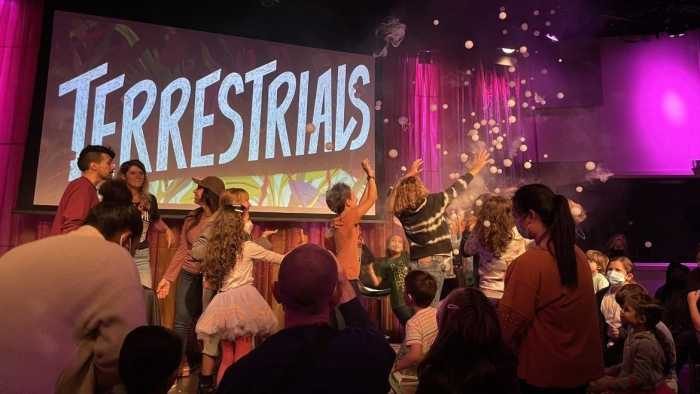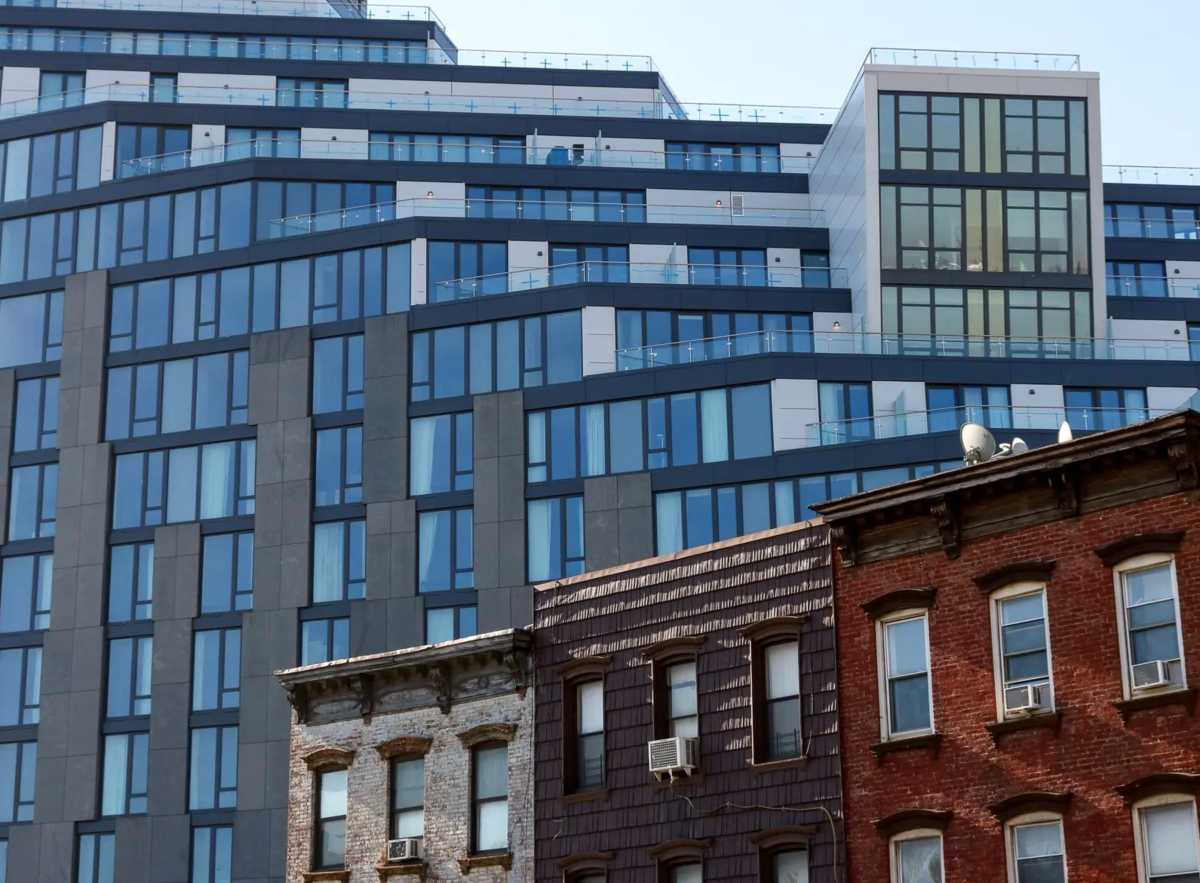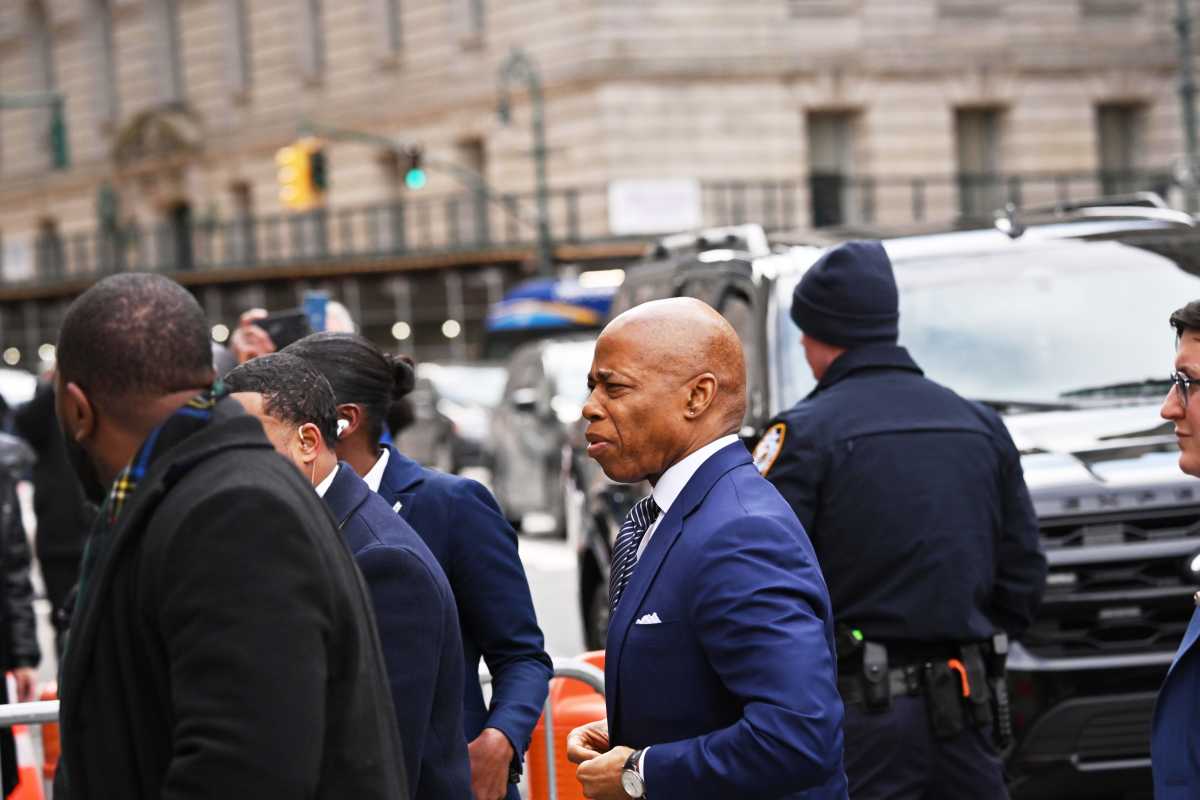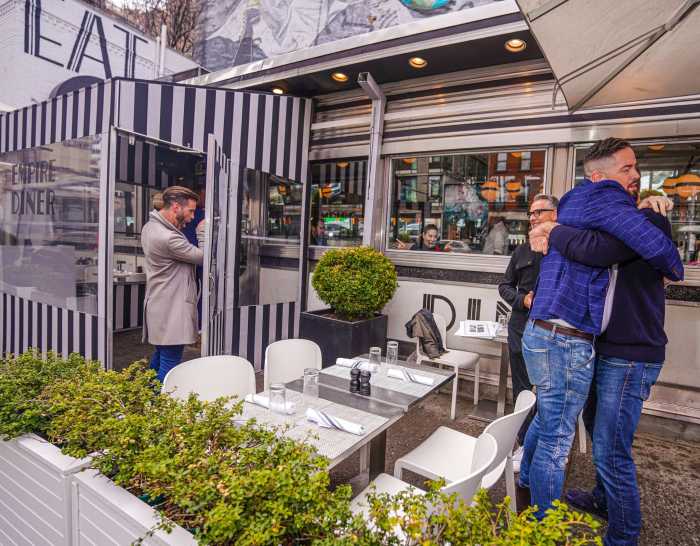Members of Sunset Park’s Community Board 7 are blasting elected officials for grouping many of the city’s homeless population at several hotels within a small stretch of the neighborhood.
“There are now seven hotel-shelters along a one-mile strip of Fourth Avenue,” said Karen Rolnick.
Mayor Bill de Blasio’s administration transferred thousands of shelter residents into hotels as the pandemic began washing over New York — citing fears among those experiencing homelessness that shelters were overcrowded and ripe for COVID-19 outbreaks, similar to the state’s nursing homes.
Shortly after the beginning of the program nearly 20 percent of the city’s hotels were occupied by members of the unhoused population.
While the effort was lauded by advocates for the city’s homeless, the idea also sparked controversy from across the city, most prominently in the ritzy Upper West Side when the Lucerne Hotel opened its doors to the city’s homeless population, sparking a vicious cycle of detractors looking to eject their new neighbors.
In Sunset Park, locals bemoaned the clustering of homeless residents at seven hotels within a single-mile stretch of each other between 20th and 40th streets.
Like is often the case when the previously unhoused arrive in a community, many civic panel members complained at an April 21 general meeting of a sharp uptick in crime, including threatening behavior, public drinking and urination, panhandling, littering, drug paraphernalia and petty theft.
“This behavior increased dramatically at the start of the pandemic when several hotels in the area were repurposed as homeless shelters,” said Rolnick.
One community board member claimed he has allegedly seen pedestrians being grabbed by hotel residents regularly.
“The passersby who I have seen heckled, grabbed and harassed at 41st and Fifth [Avenue] quite frequently since the weather got better,” said David Estrada, who also heads the Sunset Park Business Improvement District.
In response to their complaints, board members voted 29-to-6 in favor of sending a series of letters to city agencies and elected officials asking for on-site services for the hotel inhabitants and community outreach from the hotel’s managers — which are requirements of many of the city’s permanent homeless shelters — among other actions.
One letter, addressed to the local NYPD 72nd Precinct, recommends issuing summonses for the enforceable quality-of-life issues, which sparked a back-and-forth among those looking for more police enforcement, and those worried about over-policing in the area.
“I understand some of the challenges that [these homeless shelters are] creating,” said Justin Collins. “[But] I am more than a little bit concerned about calls for increased police enforcement, considering instances of police over-enforcement of a lot of things in recent memory.”
The head of the ad-hoc committee countered Collins’ demur, claiming that she floated the idea of using social workers instead of police for low-level offenses, but community board members rebuffed that idea at previous meetings.
“There wasn’t a lot of support for using social service people in lieu of police for petty issues,” Rolnick said
While Rolnick also claims that she personally does not support heightened police enforcement of the hotel-shelters, she is communicating the voices of the people who attended the meetings in their planned letters.
“I happen to disagree with this,” Rolnick said, “but this was the consensus of the people who spoke at the last meeting on April 6.”
However, the mayor announced in early April his administration is working to move hotel residents to homeless shelters but has not provided an exact timeline as of yet.
“We do feel a sense of urgency, but it has to be done safely,” de Blasio said at an April 6 press conference. “We will get a timeline for you soon on when we can start doing that”
A DHS spokesperson defended the use of “emergency relocation hotels” as one that has proven to be effective to prevent the spread of coronavirus among the city’s homeless population, as well as seniors and single people.
“As our whole City continues to navigate this situation together, we are proud that our strategies have ensured that New Yorkers experiencing homelessness receive the same protections from the pandemic as New Yorkers fortunate enough to social distance at home,” the spokesperson said. “At this time, the majority of cases we have experienced over the past year-plus have now resolved/recovered, our case rates remain low, our proactive COVID testing continues, and vaccination is underway.”
Though the measure is only temporary, the representative stressed, and the hotel residents will be relocated when the health guidelines show it’s safe to do so.
“To that end, as we have said throughout the pandemic, the temporary use of emergency relocation hotels was always intended to be temporary and not intended to be used in this way on an ongoing basis,” she said. “As our City continues to recover, we are watching our health indicators closely and working with the City’s Health Department to determine when and how clients can be safely relocated back to shelters from the temporary emergency hotel relocation sites, and we’ll inform communities when our City is ready to take that next step.”
The seven letters from the community board are as follows:
- To the 72nd Precinct and Brooklyn District Attorney Eric Gonzalez: Summonses should be issued for quality of life offenses such as harassment and drinking in public in compliance with existing laws. Community service is recommended in lieu of fines if people are unable to pay fines.
- To the city Department of Homeless Services and hotel-shelter managers:
- Can DHS arrange with all seven hotel managers to have a collaborative expansion and integration of security details so the entire area of 20th street to 40th street and Third Avenue to Fifth Avenue is patrolled on a regular basis?
- Can DHS establish monthly meetings similar to community advisory meetings with the public invited? Each hotel must have a manager present.
- Mental health, addiction reentry and job training services should be provided on-site or within this one-mile area and should be available to all hotel residents. If this cannot be arranged, shelter residents needing those services must be transferred to where they can be provided. Referrals are unacceptable.
- To DHS: We expect when Brooklyn is at 60 percent vaccination rate the three density hotels would be closed. DHS must provide site capacity information and crime and complaints statistics when asked by CB7
- To hotel – shelter management: Contact information for shelter management must be posted clearly outside of each hotel-shelter. Hotels should install benches in front of shelters or in the immediate surrounding areas, so shelter residents have a place to congregate outside especially in the warm weather.
- To the city Parks Department: Place signs in neighborhood playgrounds mandating adults must have a child with them to enter the playground.
- To Brooklyn Borough President Eric Adams: Does the presence of seven hotel shelters within a one-mile strip along Fourth Avenue violate the fair-share provision of the city charter?
- To City Comptroller Scott Stringer: Considering hotel shelters provide referrals for needed social services instead of actually providing those services, do hotel-shelters meet standards for housing the homeless?
Update (April 29, 5:30) The story was updated to include comment from a Department of Homeless Services’ spokesperson.


